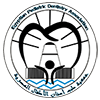Board members
Prof. Aly Sharaf
President (Egypt)
Prof. Bishara Asmar
Vice President (Lebanon)
Prof. Amr Abdel Aziz
General Secretary (Egypt)
Prof. Figen Seymen
Member (Turkey)
RAPPEL HISTORIQUE
Le premier congrès a été, organisé par Miguel Angel Bellet avec l’accord de Michel Guillain pour la France, Giuliano Falcolini pour l’Italie et Mohamed Bouchouchi pour l’Algérie.
CONGRÈS SUCCESSIFS
1 – 1986 : BARCELONE (ESPAGNE)PRÉSIDENT MIGUEL ANGEL BELLET†
Les langues officielles furent espagnol, l’italien et le français
avec traduction simultanée.
A Barcelone les quatre pays ont décidé de faire un congrès commun
tous les quatre ans, avec un rapport présenté par chacune des
Sociétés nationales dans une séance avec la présidence de la
société organisatrice du congrès.
Le second congrès fut laissé Ã l’Italie:
2 – 1990 : TAORMINE (SICILE) PRÉSIDENT GIULIANO FALCOLINI
Le troisième devait être en France, mais la SFOP à préféré
laisser la place au Liban:
3 – 1994 : BEYROUTH (LIBAN) PRÉSIDENT ELIA SFEIR.
Cette année là on a cherché à créer une organisation, pas
seulement des congrès. On a décidé de maintenir une liaison
permanente entre les Sociétés méditerranéennes sous la présidence
pour quatre ans du pays organisateur du prochain congrès, mais sans
autres structures.
Dans la période suivante, surtout par l’action de Michel Guillain,
l’organisation s’est étendue vers le pays de langue française
(Liban, Tunisie, Maroc). L’Algérie a disparue.
Puis on a eu
4 – 1998 : NICE (FRANCE) PRÉSIDENT JEAN JASMIN
5 – 2002 : TUNIS (TUNISIE) PRÉSIDENT BADIAA JEMMALI
6 – 2006 : MARRAKECH (MAROC) PRÉSIDENT TARIK RAHMANI.
Cette année là , on a décidé de laisser encore pour quatre ans la
présidence à Tarik Rahmani (Maroc).
7 – 2010 : BEYROUTH (LIBAN) PRÉSIDENT MOHAMED EZZEDINE
Sur la suggestion de Miguel Angel Bellet†, et de Giuliano Falcolini,
il a été proposé une véritable organisation, dans la perspective
de se connecter avec l’Union Européenne qui a son bureau à Barcelone
pour les relations avec les pays méditerranéens.
8 – 2014 : ISTAMBOUL (TURQUIE) PRÉSIDENT FIGEN SEYMEN
9 – 2018 : ALEXANDRIE (EGYPTE) PRÉSIDENTAly SHARAF
PAYS CONCERNÉS
Albanie, Algérie, Bosnie, Chypre, Croatie, Egypte, Espagne, Italie,
France, Grèce, Liban, Lybie, Malte, Maroc, Slovénie, Syrie, Tunisie,
Turquie
